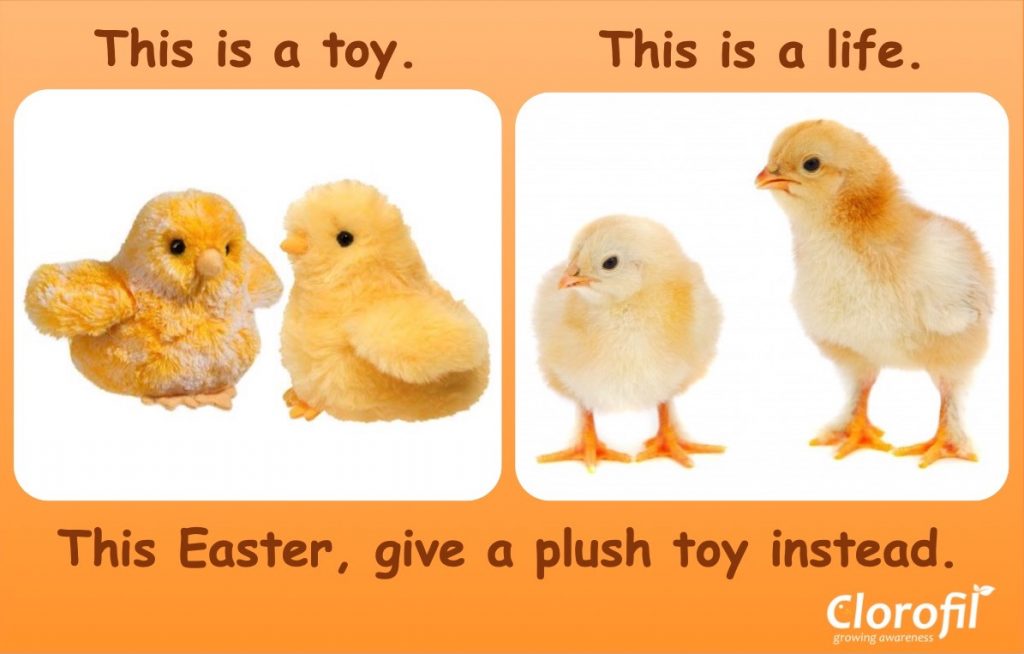By Isabelle Cnudde, founder of Clorofil, an all-volunteer animal advocacy nonprofit and micro-sanctuary in the San Francisco Bay Area.
Baby animals are extremely cute, and I find baby chicks are the cutest of them all. We want to dote on, cuddle, smooch, and snuggle with them. And right now, they are everywhere! Every feed and hardware store has bins of these fuzzy peeping balls, and it’s very tempting to bring a few home.
Resist!

A chick is a 10-year commitment, as the average lifespan of a chicken is about a decade. She will grow from a fuzzy ball to a beautiful hen who will eventually age and lay fewer eggs. You will keep her the same way you don’t give up your dog when he is not a cute puppy anymore.
Chicks require 6 weeks of constant care and monitoring, so make sure your schedule is pretty clear! Don’t plan on vacations or day trips, as someone has to check on them at least five times a day.
You will face a terrible dilemma if she turns out to be a rooster. Most cities forbid roosters, and it’s nearly impossible to find a good home for him. All animal shelters and sanctuaries are at capacity.
The chick industry hides huge cruelty. 99.9% of the chicks come from hatcheries that are similar to puppy mills, except that they kill all the boys just after they hatch.
Cute bunnies, fluffy chicks, and ducklings are unfortunately popular in Easter baskets. They are delightful, fuzzy, and irresistible, but are not appropriate gifts. They are not toys; they are live animals requiring special care and commitment to keep as pets. After a few days, they lose their novelty and are relegated to a corner of the backyard, when not abandoned in a local park.

Statistics indicate that within the first few weeks after Easter, some 30 percent of all Easter pets die, and another 60 percent are abandoned or turned in to shelters.
If you want pet chickens because they are such awesome creatures, think seriously about it. They are a big responsibility. Learn what’s involved in keeping chickens, before introducing them in your backyard.
Not only are they a 10-year commitment, but they also demand daily attention even when you are away. They can be expensive, as they need a predator-proof coop, feed, and veterinary care. You also need to make sure they are welcome in your city.
When you are ready to bring chickens in your home, please adopt and save lives. There are many chickens waiting for their forever home in local shelters and sanctuaries. See our website for pointers.

